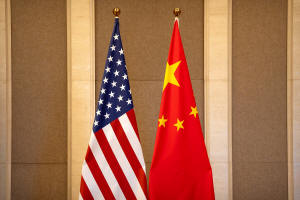|
The
APEC Secretariat's Policy Support Unit issued new forecasts on
the eve of the APEC leaders' summit in San Francisco, showing
that the 21-country region's growth rate would dip to 2.8% in
2024 from 3.3% in 2023.
The APEC GDP growth rate will average 2.9% in 2025 and 2026,
below the global average of 3.2% and 3.5-3.6% in the rest of the
world.
Among key downside risks for the Pacific Rim region are
persistent inflation associated with export restrictions,
weather conditions that have raised the price of rice and other
agricultural products, and disruptions in the fertilizer supply
chain. Taming inflation could require more monetary policy
tightening, slowing growth further.
Trade volume growth for goods is set to rebound next year among
APEC countries after a largely flat 2023 due to China's sluggish
growth, rising to 4.3% for goods exports and 3.5% for goods
imports. But growth of both exports and imports are forecast to
peak at 4.4% in 2025, declining slightly in 2026 due to
geo-political fragmentation that is disrupting longstanding
supply relationships.
Carlos Kuriyama, director of the APEC policy support unit, said
the data show that it was important for the U.S. and China to
patch up their differences after years of tariff battles and
national security export restrictions.
U.S. President Joe Biden and Chinese President Xi Jinping are
expected to meet in-person for the first time in a year on
Wednesday in a high-stakes session aimed at curbing tensions
between the world's two largest economies.
Kuriyama said that national security-driven export controls and
other restrictions between the U.S. and China are driving up
costs in supply chains that were previously optimized for
efficiency. While a full return to pre-COVID-19 trading patterns
is not possible, avoiding further fragmentation is important, he
added.
The data shows "how important it is to re-engage, de-risk and
avoid decoupling" of the U.S. and Chinese economies. "I think a
stable relationship within U.S. and China is a win-win situation
for everyone," Kuriyama said.
(Reporting by David Lawder Editing by Stephen Coates)
[© 2023 Thomson Reuters. All rights
reserved.]
This material may not be published,
broadcast, rewritten or redistributed.
Thompson Reuters is solely responsible for this content.

|
|




